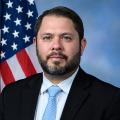Legislative District 13
Not in Legislative District 13? Find your guide.
Return Ballots by Tuesday, November 5th
The Progressive Voters Guide compiles the information that allows you to make informed decisions about ballot measures in Arizona, based on your values. Please share this guide with your friends and family.
Statewide Ballot Measures
If passed, Proposition 133 would amend the Arizona Constitution to ensure that any legislature-enacted direct primary election law would override city charters, laws, ordinances, or policies. It also changes the requirements for candidates in direct primary elections.
This measure forces taxpayers to fund primary elections for major political parties, including those not affiliated with these parties, such as independents. It also infringes on cities' ability to manage local elections in a way that best fits their communities and ends their ability to run nonpartisan elections.
By imposing a legislatively mandated system, local governments would lose the flexibility to establish election rules tailored to their specific needs. This top-down approach weakens local control and sets a dangerous precedent of increased legislative control over local governments. The added bureaucracy of a state-mandated election process could complicate election administration, leading to inefficiencies and confusion as local officials attempt to navigate conflicting mandates between state and local policies.
Vote No on Proposition 133 to protect Arizona’s primary elections from legislative control and ensure voters are able to choose general election candidates who truly represent their values.
If passed, Proposition 133 would amend the Arizona Constitution to ensure that any legislature-enacted direct primary election law would override city charters, laws, ordinances, or policies. It also changes the requirements for candidates in direct primary elections.
This measure forces taxpayers to fund primary elections for major political parties, including those not affiliated with these parties, such as independents. It also infringes on cities' ability to manage local elections in a way that best fits their communities and ends their ability to run nonpartisan elections.
By imposing a legislatively mandated system, local governments would lose the flexibility to establish election rules tailored to their specific needs. This top-down approach weakens local control and sets a dangerous precedent of increased legislative control over local governments. The added bureaucracy of a state-mandated election process could complicate election administration, leading to inefficiencies and confusion as local officials attempt to navigate conflicting mandates between state and local policies.
Vote No on Proposition 133 to protect Arizona’s primary elections from legislative control and ensure voters are able to choose general election candidates who truly represent their values.
If passed, Proposition 134 will blow up the cost of citizens gathering signatures for initiatives, likely pushing the cost to over $25M for any initiative. It will push most citizen led efforts out of reach.
Arizona’s constitution allows the people to participate in direct democracy through citizen-initiated ballot measures where voters can collect signatures, amend state laws, or challenge new laws when they think our representatives haven’t gotten it right at the capitol. The citizen initiative process is a key part of Arizona’s democracy that has allowed us to raise the minimum wage, get paid family leave for all workers, increase funding for education, and legalize recreational marijuana when the legislature has failed to act.
Over the past decade, the ballot initiative process has become increasingly difficult to navigate. This is the latest blatant attempt to remove an important way for voters to participate in democracy and propose changes to state laws and the Arizona Constitution.
Currently, the requirement for the number of signatures needed for placement on the ballot is statewide: signatures must be collected by 15% of the number of people who voted in the last Gubernatorial election for a constitutional amendment, 10% to create a new state law or amend an existing law, or 5% to challenge a new law.
This proposition would keep the same percentage of voters but require they come from all 30 legislative districts in the state. In short, it changes the rules of the game and makes it harder to hold state government accountable. This new signature requirement will make it more difficult for voter-led initiatives to appear on the ballot and would centralize more power in the hands of elected officials and less power in the hands of the people.
The power of the citizen initiative process lies in the fact that nearly any group of Arizona voters can come together to bring an issue to the ballot. Prop 134 would change the process so that only the ultra-wealthy and powerful special interest groups could gather enough signatures to bring a question to the ballot. Prop 134 makes it so that instead of reaching a general signature threshold, getting a question on the ballot would require an unrealistic amount per legislative district.
The ultra-wealthy with political power and special interest groups are not a true reflection of Arizona voters. They should not be the only ones who can afford to bring important priorities to the statewide ballot.
Vote NO on Prop 134 to protect Arizonans' right to propose and pass new laws and constitutional amendments ourselves, such as the right to have an abortion
If passed, Proposition 134 will blow up the cost of citizens gathering signatures for initiatives, likely pushing the cost to over $25M for any initiative. It will push most citizen led efforts out of reach.
Arizona’s constitution allows the people to participate in direct democracy through citizen-initiated ballot measures where voters can collect signatures, amend state laws, or challenge new laws when they think our representatives haven’t gotten it right at the capitol. The citizen initiative process is a key part of Arizona’s democracy that has allowed us to raise the minimum wage, get paid family leave for all workers, increase funding for education, and legalize recreational marijuana when the legislature has failed to act.
Over the past decade, the ballot initiative process has become increasingly difficult to navigate. This is the latest blatant attempt to remove an important way for voters to participate in democracy and propose changes to state laws and the Arizona Constitution.
Currently, the requirement for the number of signatures needed for placement on the ballot is statewide: signatures must be collected by 15% of the number of people who voted in the last Gubernatorial election for a constitutional amendment, 10% to create a new state law or amend an existing law, or 5% to challenge a new law.
This proposition would keep the same percentage of voters but require they come from all 30 legislative districts in the state. In short, it changes the rules of the game and makes it harder to hold state government accountable. This new signature requirement will make it more difficult for voter-led initiatives to appear on the ballot and would centralize more power in the hands of elected officials and less power in the hands of the people.
The power of the citizen initiative process lies in the fact that nearly any group of Arizona voters can come together to bring an issue to the ballot. Prop 134 would change the process so that only the ultra-wealthy and powerful special interest groups could gather enough signatures to bring a question to the ballot. Prop 134 makes it so that instead of reaching a general signature threshold, getting a question on the ballot would require an unrealistic amount per legislative district.
The ultra-wealthy with political power and special interest groups are not a true reflection of Arizona voters. They should not be the only ones who can afford to bring important priorities to the statewide ballot.
Vote NO on Prop 134 to protect Arizonans' right to propose and pass new laws and constitutional amendments ourselves, such as the right to have an abortion
If passed, Proposition 135 would amend the state constitution to limit the governor’s powers during a state of emergency.
Currently, the governor has full authority over state agencies and can direct them to use equipment, facilities, and personnel to prevent or relieve damage caused by the emergency. The governor is also granted powers to restore services for the health and safety of Arizona citizens.
This measure would terminate the governor’s emergency powers 30 days after they were declared. It would not allow the governor to declare a new state of emergency based on the original circumstance and would instead require the governor to seek the legislature's permission to extend their power or grant a longer timeline.
Emergency powers are for special circumstances such as natural or manmade disasters and are used only when the health and safety of Arizonans are at risk. They exist because crisis management by a committee never works. Bringing politics into an emergency situation is a sure way to minimize care and maximize kickbacks developed in backroom deals.
Vote No on Proposition 135 to protect the health and safety of every Arizonan.
If passed, Proposition 135 would amend the state constitution to limit the governor’s powers during a state of emergency.
Currently, the governor has full authority over state agencies and can direct them to use equipment, facilities, and personnel to prevent or relieve damage caused by the emergency. The governor is also granted powers to restore services for the health and safety of Arizona citizens.
This measure would terminate the governor’s emergency powers 30 days after they were declared. It would not allow the governor to declare a new state of emergency based on the original circumstance and would instead require the governor to seek the legislature's permission to extend their power or grant a longer timeline.
Emergency powers are for special circumstances such as natural or manmade disasters and are used only when the health and safety of Arizonans are at risk. They exist because crisis management by a committee never works. Bringing politics into an emergency situation is a sure way to minimize care and maximize kickbacks developed in backroom deals.
Vote No on Proposition 135 to protect the health and safety of every Arizonan.
If passed, Proposition 136 would amend Arizona’s Constitution to allow lawsuits against citizen ballot initiatives before they even reach the ballot.
Arizona’s citizen initiative process already has strict safeguards to ensure proposed measures meet all requirements before being placed on the ballot. These include rigid rules governing petition signatures, who can carry petitions, and the possibility of canvassers being summoned to court to prove their work was legitimate.
The citizen initiative process is a cornerstone of Arizona's democracy. It empowers voters to directly influence the state’s future on critical issues like education funding, minimum wage increases, or constitutional amendments such as the right to abortion. This process has historically made Arizona more equitable and just.
Proposition 136 would weaken this process by allowing special interests, corporate lobbyists, and the state legislature to file expensive lawsuits against citizen-led petitions before voters have the chance to weigh in. This is part of an ongoing effort to erode Arizona's citizens' power.
Vote No on Proposition 136 to defend Arizonans' ability to ensure state government serves the people—not special interests.
If passed, Proposition 136 would amend Arizona’s Constitution to allow lawsuits against citizen ballot initiatives before they even reach the ballot.
Arizona’s citizen initiative process already has strict safeguards to ensure proposed measures meet all requirements before being placed on the ballot. These include rigid rules governing petition signatures, who can carry petitions, and the possibility of canvassers being summoned to court to prove their work was legitimate.
The citizen initiative process is a cornerstone of Arizona's democracy. It empowers voters to directly influence the state’s future on critical issues like education funding, minimum wage increases, or constitutional amendments such as the right to abortion. This process has historically made Arizona more equitable and just.
Proposition 136 would weaken this process by allowing special interests, corporate lobbyists, and the state legislature to file expensive lawsuits against citizen-led petitions before voters have the chance to weigh in. This is part of an ongoing effort to erode Arizona's citizens' power.
Vote No on Proposition 136 to defend Arizonans' ability to ensure state government serves the people—not special interests.
If passed, Proposition 137 would amend the Arizona Constitution to remove voters' ability to hold justices and judges accountable by eliminating the judicial retention process for state Supreme Court justices, Court of Appeals judges, and judges in Coconino, Maricopa, Pima, and Pinal counties. This would allow judges to receive lifetime appointments, reducing transparency and making it harder for the public to ensure judicial accountability.
If passed, Proposition 137 would retroactively apply to this November’s election, potentially overturning voters' decisions not to retain certain justices or judges. This move appears aimed at protecting judges up for retention this year who upheld the 1864 pre-statehood abortion ban.
For over 50 years, Arizona's constitution has allowed voters to hold judges accountable through retention elections. These elections are a vital democratic tool, ensuring judges serve the public interest rather than personal or political agendas. They help prevent the courts from becoming overly politicized by ensuring decisions are grounded in law, not outside pressure.
Currently, the governor appoints judges from a nonpartisan list of nominees, and those judges must stand for retention after their first term. Trial judges face voters every four years, while appeals and Supreme Court judges face voters every six years. Proposition 137 would eliminate these elections and grant judges lifetime appointments. Under the new system, judges would only face removal if convicted of a felony or after a negative performance review by a commission, stripping the public of the ability to vote them out.
In 2016, then-Governor Doug Ducey expanded the state Supreme Court from five to seven seats, consolidating a conservative majority. Since then, the court has made several politically charged decisions that have threatened public school funding, voting rights, and workers' protections.
Eliminating retention elections would weaken Arizona's judiciary by removing a key mechanism of accountability. Preserving these elections is essential to maintaining judicial integrity and upholding democratic principles.
Arizonans deserve a judiciary and political system that remains accountable to the public, not special interests. A No vote on Proposition 137 will ensure that voters continue to have a say in who remains on the bench.
If passed, Proposition 137 would amend the Arizona Constitution to remove voters' ability to hold justices and judges accountable by eliminating the judicial retention process for state Supreme Court justices, Court of Appeals judges, and judges in Coconino, Maricopa, Pima, and Pinal counties. This would allow judges to receive lifetime appointments, reducing transparency and making it harder for the public to ensure judicial accountability.
If passed, Proposition 137 would retroactively apply to this November’s election, potentially overturning voters' decisions not to retain certain justices or judges. This move appears aimed at protecting judges up for retention this year who upheld the 1864 pre-statehood abortion ban.
For over 50 years, Arizona's constitution has allowed voters to hold judges accountable through retention elections. These elections are a vital democratic tool, ensuring judges serve the public interest rather than personal or political agendas. They help prevent the courts from becoming overly politicized by ensuring decisions are grounded in law, not outside pressure.
Currently, the governor appoints judges from a nonpartisan list of nominees, and those judges must stand for retention after their first term. Trial judges face voters every four years, while appeals and Supreme Court judges face voters every six years. Proposition 137 would eliminate these elections and grant judges lifetime appointments. Under the new system, judges would only face removal if convicted of a felony or after a negative performance review by a commission, stripping the public of the ability to vote them out.
In 2016, then-Governor Doug Ducey expanded the state Supreme Court from five to seven seats, consolidating a conservative majority. Since then, the court has made several politically charged decisions that have threatened public school funding, voting rights, and workers' protections.
Eliminating retention elections would weaken Arizona's judiciary by removing a key mechanism of accountability. Preserving these elections is essential to maintaining judicial integrity and upholding democratic principles.
Arizonans deserve a judiciary and political system that remains accountable to the public, not special interests. A No vote on Proposition 137 will ensure that voters continue to have a say in who remains on the bench.
If passed, Proposition 138 would allow restaurants and bars to reduce the wages of tipped employees by 25% below the state minimum wage, deepening the economic struggles workers face.
Arizona law permits employers to pay tipped workers up to $3 less per hour than the state minimum wage ($14.35 in 2024) as long as tips bring their earnings to at least the minimum wage. Prop 138 would further reduce this wage gap, allowing employers to pay tipped workers 25% less than the minimum wage, provided their combined wages and tips exceed the minimum wage by at least $2 per hour. (The proposition provides no additional funding for information or enforcement, so most servers will just see their checks get smaller with little ability to determine whether the complex formula for allowing a 25% reduction instead of a $3 reduction has been met.)
This measure would worsen the financial security of Arizona's tipped workers, who already face difficulty earning a living wage. Prop 138 creates a more convoluted tiered wage system, further reducing base pay and forcing workers to rely even more on unpredictable tips.
Tipped workers in Arizona already earn $3 less than non-tipped workers. By lowering the tipped minimum wage further, Prop 138 would widen this wage gap and heighten poverty rates among tipped workers. Data shows that in states with larger wage gaps between tipped and non-tipped employees, poverty rates among tipped workers are significantly higher. In Arizona, tipped workers experience a poverty rate of 9.8%, compared to 5.5% for non-tipped workers. For women in tipped positions, the poverty rate is even higher at 10.8%. Prop 138 would exacerbate these disparities, especially for women, who make up nearly 70% of tipped workers.
Prop 138 disproportionately harms women and people of color, who are overrepresented in tipped positions. These workers already face economic vulnerabilities, and the proposition would leave their earnings more reliant on customer discretion, often influenced by bias, rather than guaranteed fair wages.
Prop 138 is backed by the restaurant industry, which has a long history of opposing fair pay and benefits for its workers, including efforts to block the 2016 voter-approved minimum wage increase. This proposition serves their interests by cutting labor costs at the expense of workers' livelihoods, further entrenching systemic inequities.
All workers deserve a living wage, especially as the cost of living continues to rise. Prop 138 would push Arizona’s tipped workers further into financial instability, deepening poverty and widening the wage gap between tipped and non-tipped workers. Employment laws should protect workers, not corporate profits.
Vote No on Prop 138 and stand with Arizona’s tipped workers.
If passed, Proposition 138 would allow restaurants and bars to reduce the wages of tipped employees by 25% below the state minimum wage, deepening the economic struggles workers face.
Arizona law permits employers to pay tipped workers up to $3 less per hour than the state minimum wage ($14.35 in 2024) as long as tips bring their earnings to at least the minimum wage. Prop 138 would further reduce this wage gap, allowing employers to pay tipped workers 25% less than the minimum wage, provided their combined wages and tips exceed the minimum wage by at least $2 per hour. (The proposition provides no additional funding for information or enforcement, so most servers will just see their checks get smaller with little ability to determine whether the complex formula for allowing a 25% reduction instead of a $3 reduction has been met.)
This measure would worsen the financial security of Arizona's tipped workers, who already face difficulty earning a living wage. Prop 138 creates a more convoluted tiered wage system, further reducing base pay and forcing workers to rely even more on unpredictable tips.
Tipped workers in Arizona already earn $3 less than non-tipped workers. By lowering the tipped minimum wage further, Prop 138 would widen this wage gap and heighten poverty rates among tipped workers. Data shows that in states with larger wage gaps between tipped and non-tipped employees, poverty rates among tipped workers are significantly higher. In Arizona, tipped workers experience a poverty rate of 9.8%, compared to 5.5% for non-tipped workers. For women in tipped positions, the poverty rate is even higher at 10.8%. Prop 138 would exacerbate these disparities, especially for women, who make up nearly 70% of tipped workers.
Prop 138 disproportionately harms women and people of color, who are overrepresented in tipped positions. These workers already face economic vulnerabilities, and the proposition would leave their earnings more reliant on customer discretion, often influenced by bias, rather than guaranteed fair wages.
Prop 138 is backed by the restaurant industry, which has a long history of opposing fair pay and benefits for its workers, including efforts to block the 2016 voter-approved minimum wage increase. This proposition serves their interests by cutting labor costs at the expense of workers' livelihoods, further entrenching systemic inequities.
All workers deserve a living wage, especially as the cost of living continues to rise. Prop 138 would push Arizona’s tipped workers further into financial instability, deepening poverty and widening the wage gap between tipped and non-tipped workers. Employment laws should protect workers, not corporate profits.
Vote No on Prop 138 and stand with Arizona’s tipped workers.
Proposition 139 would make abortion access a constitutional right in Arizona.
Currently, Arizona law limits abortion to the first 15 weeks of gestation without exceptions for victims of rape or incest. This law was passed in 2022 by the state legislature. Doctors who perform an abortion beyond this gestational deadline except to prevent the death or injury of a patient would face a class six felony, which could lead to a prison sentence of up to two years.
Proposition 139 explicitly states every Arizonan has a fundamental right to an abortion. It would prohibit any law, regulation, or policy that would deny, restrict, or interfere with abortion access before fetal viability (when a doctor believes a fetus can survive on its own outside of the uterus) without a compelling reason to do so and in the least restrictive way possible. It also restricts any law that would deny abortion access after fetal viability that is necessary to protect the patient’s life or mental health. Finally, it prevents the state from penalizing anyone who assists another person in exercising their right to abortion.
Vote YES on Proposition 139 to ensure your freedom to make your own healthcare decisions!
Proposition 139 would make abortion access a constitutional right in Arizona.
Currently, Arizona law limits abortion to the first 15 weeks of gestation without exceptions for victims of rape or incest. This law was passed in 2022 by the state legislature. Doctors who perform an abortion beyond this gestational deadline except to prevent the death or injury of a patient would face a class six felony, which could lead to a prison sentence of up to two years.
Proposition 139 explicitly states every Arizonan has a fundamental right to an abortion. It would prohibit any law, regulation, or policy that would deny, restrict, or interfere with abortion access before fetal viability (when a doctor believes a fetus can survive on its own outside of the uterus) without a compelling reason to do so and in the least restrictive way possible. It also restricts any law that would deny abortion access after fetal viability that is necessary to protect the patient’s life or mental health. Finally, it prevents the state from penalizing anyone who assists another person in exercising their right to abortion.
Vote YES on Proposition 139 to ensure your freedom to make your own healthcare decisions!
If passed, Proposition 140 would fundamentally alter our state’s electoral system and weaken the voices of Arizona voters.
If passed, Proposition 140 would replace partisan primaries with primaries in which all candidates appear on a single ballot in the primary. Regardless of party affiliation, the top vote-getters in the primary would qualify to continue on to the November ballot. In many areas of Arizona, adopting this new system could result in no democratic candidates advancing to the ballot in the General Election. Big-money interests will be able to buy the November ballot. With public school education funding, access to reproductive healthcare, a housing shortage, and rising costs, we must ensure we maintain the representation of these values in our elected officials.
Vote No on Proposition 140 to protect progressive values on the ballot.
If passed, Proposition 140 would fundamentally alter our state’s electoral system and weaken the voices of Arizona voters.
If passed, Proposition 140 would replace partisan primaries with primaries in which all candidates appear on a single ballot in the primary. Regardless of party affiliation, the top vote-getters in the primary would qualify to continue on to the November ballot. In many areas of Arizona, adopting this new system could result in no democratic candidates advancing to the ballot in the General Election. Big-money interests will be able to buy the November ballot. With public school education funding, access to reproductive healthcare, a housing shortage, and rising costs, we must ensure we maintain the representation of these values in our elected officials.
Vote No on Proposition 140 to protect progressive values on the ballot.
If passed, Proposition 312 would allow Arizona property owners to apply for a property tax refund if the city they reside in does not effectively eliminate homelessness by enforcing laws against things like public camping or having a sign asking for help at an intersection. It would force cities and towns to criminalize individuals for not having a home and divert resources away from affordable housing and shelters.
This proposition would undercut funding municipalities need to help people who are unhoused and who often suffer from mental health conditions. It also sets a public policy marker that contemplates a pathway for vigilante management of Arizona’s homeless community.
Vote No on Proposition 312 to ensure local governments have the resources they need to help the unhoused and those who need mental health care.
If passed, Proposition 312 would allow Arizona property owners to apply for a property tax refund if the city they reside in does not effectively eliminate homelessness by enforcing laws against things like public camping or having a sign asking for help at an intersection. It would force cities and towns to criminalize individuals for not having a home and divert resources away from affordable housing and shelters.
This proposition would undercut funding municipalities need to help people who are unhoused and who often suffer from mental health conditions. It also sets a public policy marker that contemplates a pathway for vigilante management of Arizona’s homeless community.
Vote No on Proposition 312 to ensure local governments have the resources they need to help the unhoused and those who need mental health care.
If passed, Proposition 313 would increase ineffectual mandatory minimum sentencing. This proposition would require adults convicted of sex trafficking of a minor child, including victims of sex trafficking, to be sentenced to natural life imprisonment without any form of release. This proposition could unintentionally target minors who are themselves victims of sex trafficking. Experts in sex trafficking know that victims have been then used to coerce other victims into the trade.
Under current law, the presumptive sentence for a first offense is 20 years per count, with each count required to be consecutive to any other. The importance of giving a judge discretion over sentencing is that the punishment can be adjusted to meet the severity of the crime, something beyond the scope of a “one size fits all” approach.
Vote NO on Proposition 313 to give judges discretion in sentencing for victims of sex trafficking!
If passed, Proposition 313 would increase ineffectual mandatory minimum sentencing. This proposition would require adults convicted of sex trafficking of a minor child, including victims of sex trafficking, to be sentenced to natural life imprisonment without any form of release. This proposition could unintentionally target minors who are themselves victims of sex trafficking. Experts in sex trafficking know that victims have been then used to coerce other victims into the trade.
Under current law, the presumptive sentence for a first offense is 20 years per count, with each count required to be consecutive to any other. The importance of giving a judge discretion over sentencing is that the punishment can be adjusted to meet the severity of the crime, something beyond the scope of a “one size fits all” approach.
Vote NO on Proposition 313 to give judges discretion in sentencing for victims of sex trafficking!
If passed, Proposition 314 would criminalize undocumented immigrants, making it a state crime for anyone without legal status to enter Arizona outside of a port of entry. The measure claims to address border security and the fentanyl epidemic but fails to address the root issues of both of these crises.
Rooted in racism, this poorly crafted measure has no geographic limits or protections for individuals who may qualify for legal status under federal law, including individuals seeking asylum. If Proposition 314 goes into effect, Arizonans will be profiled and harassed based on the color of their skin. It would lead to civil rights violations, escalated violence towards communities of color, as well as harm Arizona’s economy - repeating the damage caused by SB1070 nearly 15 years ago.
Under Prop 314, people of all ages—including children and the elderly—could face arrest anywhere, including locations meant to be places of refuge like schools, places of worship, and hospitals. Detained parents would be separated from their children, as local jails don’t allow minors to be held with adults. It also attacks the asylum process, bypassing federal protections meant to safeguard those fleeing persecution
Proposition 314 also imposes an unfunded mandate - the total cost of which is estimated to be upwards of $300 million - on local governments and law enforcement, forcing cities and counties to take on federal immigration enforcement duties. In the absence of an identified funding source, Arizona taxpayers will be forced to shoulder the burden, and local jurisdictions will have to divert resources from other essential services to comply with this unfunded mandate.
Vote No on Proposition 314 to protect Arizona families from racial profiling and unjust detentions.
If passed, Proposition 314 would criminalize undocumented immigrants, making it a state crime for anyone without legal status to enter Arizona outside of a port of entry. The measure claims to address border security and the fentanyl epidemic but fails to address the root issues of both of these crises.
Rooted in racism, this poorly crafted measure has no geographic limits or protections for individuals who may qualify for legal status under federal law, including individuals seeking asylum. If Proposition 314 goes into effect, Arizonans will be profiled and harassed based on the color of their skin. It would lead to civil rights violations, escalated violence towards communities of color, as well as harm Arizona’s economy - repeating the damage caused by SB1070 nearly 15 years ago.
Under Prop 314, people of all ages—including children and the elderly—could face arrest anywhere, including locations meant to be places of refuge like schools, places of worship, and hospitals. Detained parents would be separated from their children, as local jails don’t allow minors to be held with adults. It also attacks the asylum process, bypassing federal protections meant to safeguard those fleeing persecution
Proposition 314 also imposes an unfunded mandate - the total cost of which is estimated to be upwards of $300 million - on local governments and law enforcement, forcing cities and counties to take on federal immigration enforcement duties. In the absence of an identified funding source, Arizona taxpayers will be forced to shoulder the burden, and local jurisdictions will have to divert resources from other essential services to comply with this unfunded mandate.
Vote No on Proposition 314 to protect Arizona families from racial profiling and unjust detentions.
If passed, Proposition 315 would require the legislature to approve certain rules made by state agencies. It would statutorily prevent a new rule from going into effect if it would increase regulatory costs by more than $100,000. If a new rule that has been proposed would increase regulatory costs by more than $500,000, it will require approval by the legislature to go into effect.
Under the current law, if a state agency wants to develop a new rule under its subject purview, it must allow public comment for at least 30 days before submitting it for approval to the Governor’s Regulatory Review Council (GRRC). It is also reviewed by the Legislature’s Administrative Rules Oversight Committee to ensure it complies with the law.
Executive agency rule-making is important to a functional state government. Oftentimes, legislators do not have the proper expertise to determine if a new rule is needed or how it should be implemented. The rulemaking process allows for direct public input and for the use of best practices, and for experts to be brought in for complex and important topics such as how to ensure adequate clean water, cybersecurity for filing taxes electronically, or using best practices to ensure the public’s health as examples. These agencies carry out the day-to-day business of running the government and employ career professionals to accomplish this task.
Vote No on Proposition 315 to keep legislative politics out of the administration of state government.
If passed, Proposition 315 would require the legislature to approve certain rules made by state agencies. It would statutorily prevent a new rule from going into effect if it would increase regulatory costs by more than $100,000. If a new rule that has been proposed would increase regulatory costs by more than $500,000, it will require approval by the legislature to go into effect.
Under the current law, if a state agency wants to develop a new rule under its subject purview, it must allow public comment for at least 30 days before submitting it for approval to the Governor’s Regulatory Review Council (GRRC). It is also reviewed by the Legislature’s Administrative Rules Oversight Committee to ensure it complies with the law.
Executive agency rule-making is important to a functional state government. Oftentimes, legislators do not have the proper expertise to determine if a new rule is needed or how it should be implemented. The rulemaking process allows for direct public input and for the use of best practices, and for experts to be brought in for complex and important topics such as how to ensure adequate clean water, cybersecurity for filing taxes electronically, or using best practices to ensure the public’s health as examples. These agencies carry out the day-to-day business of running the government and employ career professionals to accomplish this task.
Vote No on Proposition 315 to keep legislative politics out of the administration of state government.
Federal Races
Vice President Kamala Harris has served as an Attorney General, U.S. Senator, and currently as Vice President of the United States. Throughout her career, Harris has fought for victims of sexual assault and domestic violence, working-class people, families, homeowners, small-business owners, reproductive justice, climate justice, as well as cracking down on corporations, monopolies, and billionaires. She is dedicated to protecting the American people from corporate price-gouging, landlord price-fixing, and predatory loan practices. As President, Harris promises to continue and expand her accomplishments as part of the Biden-Harris Administration, such as expanding the Child Tax Credit, extending prescription drug price-caps to all Americans, as well as general expansion of the administration’s work to address inflation, housing, and increasing the minimum wage.
Vice President Kamala Harris has served as an Attorney General, U.S. Senator, and currently as Vice President of the United States. Throughout her career, Harris has fought for victims of sexual assault and domestic violence, working-class people, families, homeowners, small-business owners, reproductive justice, climate justice, as well as cracking down on corporations, monopolies, and billionaires. She is dedicated to protecting the American people from corporate price-gouging, landlord price-fixing, and predatory loan practices. As President, Harris promises to continue and expand her accomplishments as part of the Biden-Harris Administration, such as expanding the Child Tax Credit, extending prescription drug price-caps to all Americans, as well as general expansion of the administration’s work to address inflation, housing, and increasing the minimum wage.
Rep. Ruben Gallego is a first-generation American, father, and Marine Corps veteran who served in Iraq, and currently represents AZ-03 in the U.S. House of Representatives. As a U.S. Representative, Gallego has served on multiple committees and introduced legislation supporting DACA recipients, Americans with disabilities, tribal communities, veterans, teachers, parents, and working-class Americans. In Congress, he has sponsored, introduced, and helped pass legislation like the Inflation Reduction Act, the CHIPS Act, and the John R. Lewis Voting Rights Advancement Act. As Senator, Rep. Gallego promises to waive the filibuster and codify Roe v. Wade, expand climate resiliency efforts, improve veteran services, enhance Medicare benefits, implement a living wage and affordable housing, as well as make billionaires and corporations pay their fair share in taxes.
Rep. Ruben Gallego is a first-generation American, father, and Marine Corps veteran who served in Iraq, and currently represents AZ-03 in the U.S. House of Representatives. As a U.S. Representative, Gallego has served on multiple committees and introduced legislation supporting DACA recipients, Americans with disabilities, tribal communities, veterans, teachers, parents, and working-class Americans. In Congress, he has sponsored, introduced, and helped pass legislation like the Inflation Reduction Act, the CHIPS Act, and the John R. Lewis Voting Rights Advancement Act. As Senator, Rep. Gallego promises to waive the filibuster and codify Roe v. Wade, expand climate resiliency efforts, improve veteran services, enhance Medicare benefits, implement a living wage and affordable housing, as well as make billionaires and corporations pay their fair share in taxes.
4th Congressional District
Rep. Greg Stanton is the former Mayor of the City of Phoenix and has been serving in Congress since 2019. In Congress, he has worked to protect water resources, securing a $4B investment in drought relief for the Southwest, led efforts to pass the CHIPS and Science Act, and supported legislation to protect democracy. Rep. Stanton also refuses to take money from Big Pharma and supports legislation to protect reproductive rights and the LGBTQ+ community. He is endorsed by AEA, AFL-CIO, League of Conservation Voters, National Resources Defense Fund, Planned Parenthood, NARAL, Sierra Club, and many more.
Rep. Greg Stanton is the former Mayor of the City of Phoenix and has been serving in Congress since 2019. In Congress, he has worked to protect water resources, securing a $4B investment in drought relief for the Southwest, led efforts to pass the CHIPS and Science Act, and supported legislation to protect democracy. Rep. Stanton also refuses to take money from Big Pharma and supports legislation to protect reproductive rights and the LGBTQ+ community. He is endorsed by AEA, AFL-CIO, League of Conservation Voters, National Resources Defense Fund, Planned Parenthood, NARAL, Sierra Club, and many more.
Statewide
Jonathan Hill is a scientist, engineer, and educator at Arizona State University. As Corporation Commissioner, he promises to advocate to protect hardworking Arizonans from unnecessary and excessive rate hikes and to prioritize groundwater management issues in rural areas. His platform also includes climate resiliency, solar-industry jobs, and cybersecurity. Hill is running as a Clean Elections Candidate and refuses to take money from special interests and corporate entities. He is also endorsed by Sierra Club, Climate Cabinet, Natl. Organization for Women (NOW), Indivisible AZ, and AFL-CIO.
Jonathan Hill is a scientist, engineer, and educator at Arizona State University. As Corporation Commissioner, he promises to advocate to protect hardworking Arizonans from unnecessary and excessive rate hikes and to prioritize groundwater management issues in rural areas. His platform also includes climate resiliency, solar-industry jobs, and cybersecurity. Hill is running as a Clean Elections Candidate and refuses to take money from special interests and corporate entities. He is also endorsed by Sierra Club, Climate Cabinet, Natl. Organization for Women (NOW), Indivisible AZ, and AFL-CIO.
Joshua Polachek is a former commissioned foreign service officer with the United States Department of State who worked to build modern clean energy projects in foreign countries. His main platform is to secure affordability, reliability, and security of utilities for all Arizonans. He wants to remove the Corporation Commission from the pocket of out-of-state oil and coal companies, invest in diverse clean energy and storage, create clean energy jobs, and gain Arizona energy independence through these policies. He is endorsed by SEIU, IBEW Local 640, CWA, and AFL-CIO.
Joshua Polachek is a former commissioned foreign service officer with the United States Department of State who worked to build modern clean energy projects in foreign countries. His main platform is to secure affordability, reliability, and security of utilities for all Arizonans. He wants to remove the Corporation Commission from the pocket of out-of-state oil and coal companies, invest in diverse clean energy and storage, create clean energy jobs, and gain Arizona energy independence through these policies. He is endorsed by SEIU, IBEW Local 640, CWA, and AFL-CIO.
Ylenia Aguilar has served as a Governing Board Member in the Osborn School District, a trustee on the Vitalyst Health Foundation Board, and is a member of the Central Arizona Water Conservation District. As a Corporation Commissioner, she promises to fight for renewable energy resources and consumer protections. She is running as a Clean Elections Candidate and refuses to take money from special interests and corporate entities. Aguilar is also endorsed by multiple progressive state legislators, mayors, and many other Arizona community leaders.
Ylenia Aguilar has served as a Governing Board Member in the Osborn School District, a trustee on the Vitalyst Health Foundation Board, and is a member of the Central Arizona Water Conservation District. As a Corporation Commissioner, she promises to fight for renewable energy resources and consumer protections. She is running as a Clean Elections Candidate and refuses to take money from special interests and corporate entities. Aguilar is also endorsed by multiple progressive state legislators, mayors, and many other Arizona community leaders.
Statewide
Vote NO on retention for Justice Clint Bolick.
In 2024, Justice Clint Bolick was one of four Arizona Supreme Court Justices who voted to reinstate an 1864 ban that would have outlawed abortions in Arizona in nearly all cases, threatening to put providers in jail. Before being appointed by Gov. Doug Ducey, Justice Bolick spent his career as a special interest lobbyist railing against public education and advocating against school funding and desegregation. After becoming a State Supreme Court Justice, he used his power to block a voter-approved initiative that would have restored much-needed funding to K-12 classrooms. In 2022, when the legislature passed a flat tax that gave a giant tax break to the wealthiest Arizonans and further decimated public education funding, Bolick voted to deny Arizona voters their constitutional right to veto this extreme proposal.
Vote NO on retention for Justice Clint Bolick.
In 2024, Justice Clint Bolick was one of four Arizona Supreme Court Justices who voted to reinstate an 1864 ban that would have outlawed abortions in Arizona in nearly all cases, threatening to put providers in jail. Before being appointed by Gov. Doug Ducey, Justice Bolick spent his career as a special interest lobbyist railing against public education and advocating against school funding and desegregation. After becoming a State Supreme Court Justice, he used his power to block a voter-approved initiative that would have restored much-needed funding to K-12 classrooms. In 2022, when the legislature passed a flat tax that gave a giant tax break to the wealthiest Arizonans and further decimated public education funding, Bolick voted to deny Arizona voters their constitutional right to veto this extreme proposal.
Vote NO on retention for Justice Kathryn H. King.
In 2024, Justice Kathryn H. King was one of four Arizona Supreme Court Justices who voted to reinstate an 1864 ban on that would have outlawed abortions in Arizona in nearly all cases, threatening to put providers in jail. Before being appointed to the Supreme Court by Governor Ducey, Justice King spent much of her career as a corporate litigator helping employers squash lawsuits brought by their employees. In 2022, when the legislature passed a flat tax that gave a giant tax break to the wealthiest Arizonans and further decimated public education funding, King voted to deny Arizona voters their constitutional right to veto this extreme proposal.
Vote NO on retention for Justice Kathryn H. King.
In 2024, Justice Kathryn H. King was one of four Arizona Supreme Court Justices who voted to reinstate an 1864 ban on that would have outlawed abortions in Arizona in nearly all cases, threatening to put providers in jail. Before being appointed to the Supreme Court by Governor Ducey, Justice King spent much of her career as a corporate litigator helping employers squash lawsuits brought by their employees. In 2022, when the legislature passed a flat tax that gave a giant tax break to the wealthiest Arizonans and further decimated public education funding, King voted to deny Arizona voters their constitutional right to veto this extreme proposal.
Legislative District 13
Brandy Reese is a forensic scientist, mother, and lifelong education advocate with a degree in Chemistry from the University of Oklahoma. After relocating to Arizona with her family, she got involved in the Red for Ed movement to advocate for better pay and working conditions for educators working in Arizona public schools. If elected, she is committed to fighting for investments in public education, protecting Arizona’s water supply, and expanding reproductive freedom. She is endorsed by the AFL-CIO, Arizona List, AEA, Everytown, HRC, and more.
Brandy Reese is a forensic scientist, mother, and lifelong education advocate with a degree in Chemistry from the University of Oklahoma. After relocating to Arizona with her family, she got involved in the Red for Ed movement to advocate for better pay and working conditions for educators working in Arizona public schools. If elected, she is committed to fighting for investments in public education, protecting Arizona’s water supply, and expanding reproductive freedom. She is endorsed by the AFL-CIO, Arizona List, AEA, Everytown, HRC, and more.
Nicholas Gonzales is an entrepreneur, community planner, and father running in his home district of LD-13. He attended the Chandler Unifed School District, and later, Arizona State University. If elected as a state representative, Gonzales promises to fight for affordable housing development, reproductive freedom, economic development, and education. He is endorsed by AEA, Living United for Change in Arizona (LUCHA), HRC, the Sierra Club Grand Canyon Chapter, and more.
Nicholas Gonzales is an entrepreneur, community planner, and father running in his home district of LD-13. He attended the Chandler Unifed School District, and later, Arizona State University. If elected as a state representative, Gonzales promises to fight for affordable housing development, reproductive freedom, economic development, and education. He is endorsed by AEA, Living United for Change in Arizona (LUCHA), HRC, the Sierra Club Grand Canyon Chapter, and more.
Sharon Lee Winters is an author and former public school teacher. If elected as a state senator, she pledges to fight for public education funding, voting rights, and to enshrine abortion protection into our state's constitution to ensure that these rights can never be attacked again.
Sharon Lee Winters is an author and former public school teacher. If elected as a state senator, she pledges to fight for public education funding, voting rights, and to enshrine abortion protection into our state's constitution to ensure that these rights can never be attacked again.
Maricopa County
Heather Macre has spent the last 12 years fighting to protect our water as a member of the Central Arizona Water Conservation District Board of Directors. She is also an attorney and spends her free time raising money for children in the community through Suns Charities 88.
Heather Macre has spent the last 12 years fighting to protect our water as a member of the Central Arizona Water Conservation District Board of Directors. She is also an attorney and spends her free time raising money for children in the community through Suns Charities 88.
Greg Freeman is running for Maricopa County Assessor which collects $5.5 billion in property tax annually, 57% of which goes to our schools. He has over a decade of experience in the real estate industry and currently serves on multiple zoning commissions. As assessor, Freeman promises to prioritize housing affordability and tax equity for Arizonans. He is endorsed by numerous labor unions, Moms Demand Action, Natl. Organization for Women (NOW), and more.
Greg Freeman is running for Maricopa County Assessor which collects $5.5 billion in property tax annually, 57% of which goes to our schools. He has over a decade of experience in the real estate industry and currently serves on multiple zoning commissions. As assessor, Freeman promises to prioritize housing affordability and tax equity for Arizonans. He is endorsed by numerous labor unions, Moms Demand Action, Natl. Organization for Women (NOW), and more.
Dr. Laura Metcalfe is a product of Arizona’s public schools as a graduate of Westwood High School in Mesa, Mesa Community College, Arizona State University, and Northern Arizona University and has over 27 years of experience as an educator. If elected, Dr. Metcalfe promises to leverage the office to strengthen parent and teacher voices, increase respect for the education profession, and create resources that expand the capacity of teachers, administrators, and support staff.
Dr. Laura Metcalfe is a product of Arizona’s public schools as a graduate of Westwood High School in Mesa, Mesa Community College, Arizona State University, and Northern Arizona University and has over 27 years of experience as an educator. If elected, Dr. Metcalfe promises to leverage the office to strengthen parent and teacher voices, increase respect for the education profession, and create resources that expand the capacity of teachers, administrators, and support staff.
Tim Stringham spent most of his adult life serving in the Armed Forces since graduating from ASU – first in the U.S. Army, including a tour of Afghanistan in 2012, then in the U.S. Navy as an attorney in the Judge Advocate General’s Corps. If elected, he promises to fight to protect our right to vote, including mail-in voting, to ensure every Arizonan can cast their vote safely, securely, and conveniently, and that each vote is counted fairly and transparently. Stringham is endorsed by numerous labor unions, VoteVets, Moms Demand Action, Worker Power, Common Defense, and more.
Tim Stringham spent most of his adult life serving in the Armed Forces since graduating from ASU – first in the U.S. Army, including a tour of Afghanistan in 2012, then in the U.S. Navy as an attorney in the Judge Advocate General’s Corps. If elected, he promises to fight to protect our right to vote, including mail-in voting, to ensure every Arizonan can cast their vote safely, securely, and conveniently, and that each vote is counted fairly and transparently. Stringham is endorsed by numerous labor unions, VoteVets, Moms Demand Action, Worker Power, Common Defense, and more.
Tamika Wooten has been a practicing attorney for 34 years, with experience as a prosecutor, defense attorney, and judge who is committed to implementing restorative justice practices and protecting children and families. While working as the Chief Prosecutor at the City of Glendale, she helped to coordinate an award-winning Domestic Violence program. If elected, Wooten promises to prioritize alternatives to incarceration for minor offenses in order to reduce prison populations, save taxpayers millions of dollars, and give Maricopa County communities a chance to heal.
Tamika Wooten has been a practicing attorney for 34 years, with experience as a prosecutor, defense attorney, and judge who is committed to implementing restorative justice practices and protecting children and families. While working as the Chief Prosecutor at the City of Glendale, she helped to coordinate an award-winning Domestic Violence program. If elected, Wooten promises to prioritize alternatives to incarceration for minor offenses in order to reduce prison populations, save taxpayers millions of dollars, and give Maricopa County communities a chance to heal.
Maricopa County, District 1
Joel Navarro is a firefighter and paramedic who has worked for the Phoenix Fire Department since 1995, where he has overseen various departments such as Special Operations, FEMA, Fire Resource, Facilities, Safety, and Emergency Medical Services (EMS). He was first elected to the Tempe City Council in 2008 and won re-election in 2012, 2016, and 2020 with a commitment to fighting for public safety, neighborhoods, parks, housing, homelessness, mental health, drug addiction/opioids, trade with Mexico, and local live music. Navarro is endorsed by multiple labor unions.
Joel Navarro is a firefighter and paramedic who has worked for the Phoenix Fire Department since 1995, where he has overseen various departments such as Special Operations, FEMA, Fire Resource, Facilities, Safety, and Emergency Medical Services (EMS). He was first elected to the Tempe City Council in 2008 and won re-election in 2012, 2016, and 2020 with a commitment to fighting for public safety, neighborhoods, parks, housing, homelessness, mental health, drug addiction/opioids, trade with Mexico, and local live music. Navarro is endorsed by multiple labor unions.
School Districts
Agua Fria Union High School District, No.216
Local school districts use bonds to ensure they have the funding to fully meet students' needs. Bonds are usually used for larger projects like school buildings.
If a bond campaign fails, the local school district may be forced to lay off educators, increase class sizes or delay much-needed repairs to classrooms and facilities.
Every Arizona kid deserves an excellent education, no matter who they are or where they live. Our kids deserve safe, welcoming campuses, skilled and experienced teachers, and class sizes small enough for 1:1 attention. By voting yes on the school district bonds that appear on your ballot, you can help ensure Arizona's students get the education they deserve.
Local school districts use bonds to ensure they have the funding to fully meet students' needs. Bonds are usually used for larger projects like school buildings.
If a bond campaign fails, the local school district may be forced to lay off educators, increase class sizes or delay much-needed repairs to classrooms and facilities.
Every Arizona kid deserves an excellent education, no matter who they are or where they live. Our kids deserve safe, welcoming campuses, skilled and experienced teachers, and class sizes small enough for 1:1 attention. By voting yes on the school district bonds that appear on your ballot, you can help ensure Arizona's students get the education they deserve.
Buckeye Union High School District, No. 201
Local school districts use bonds to ensure they have the funding to fully meet students' needs. Bonds are usually used for larger projects like school buildings.
If a bond campaign fails, the local school district may be forced to lay off educators, increase class sizes or delay much-needed repairs to classrooms and facilities.
Every Arizona kid deserves an excellent education, no matter who they are or where they live. Our kids deserve safe, welcoming campuses, skilled and experienced teachers, and class sizes small enough for 1:1 attention. By voting yes on the school district bonds that appear on your ballot, you can help ensure Arizona's students get the education they deserve.
Local school districts use bonds to ensure they have the funding to fully meet students' needs. Bonds are usually used for larger projects like school buildings.
If a bond campaign fails, the local school district may be forced to lay off educators, increase class sizes or delay much-needed repairs to classrooms and facilities.
Every Arizona kid deserves an excellent education, no matter who they are or where they live. Our kids deserve safe, welcoming campuses, skilled and experienced teachers, and class sizes small enough for 1:1 attention. By voting yes on the school district bonds that appear on your ballot, you can help ensure Arizona's students get the education they deserve.
Chandler Unified School District, No. 80
Local school districts use bonds to ensure they have the funding to fully meet students' needs. Bonds are usually used for larger projects like school buildings.
If a bond campaign fails, the local school district may be forced to lay off educators, increase class sizes or delay much-needed repairs to classrooms and facilities.
Every Arizona kid deserves an excellent education, no matter who they are or where they live. Our kids deserve safe, welcoming campuses, skilled and experienced teachers, and class sizes small enough for 1:1 attention. By voting yes on the school district bonds that appear on your ballot, you can help ensure Arizona's students get the education they deserve.
Local school districts use bonds to ensure they have the funding to fully meet students' needs. Bonds are usually used for larger projects like school buildings.
If a bond campaign fails, the local school district may be forced to lay off educators, increase class sizes or delay much-needed repairs to classrooms and facilities.
Every Arizona kid deserves an excellent education, no matter who they are or where they live. Our kids deserve safe, welcoming campuses, skilled and experienced teachers, and class sizes small enough for 1:1 attention. By voting yes on the school district bonds that appear on your ballot, you can help ensure Arizona's students get the education they deserve.
Gilbert Unified School District, No. 41
Local school districts use budget overrides and site sales to ensure they have the funding to fully meet students' needs. Overrides provide ongoing funding for things like educator pay, while site sales sell no longer needed property to benefit the community.
If an override campaign fails, the local school district may be forced to lay off educators, increase class sizes or delay much-needed repairs to classrooms and facilities.
Every Arizona kid deserves an excellent education, no matter who they are or where they live. Our kids deserve safe, welcoming campuses, skilled and experienced teachers, and class sizes small enough for 1:1 attention. By voting yes on the school district override and site sale that appears on your ballot, you can help ensure Arizona's students get the education they deserve.
Local school districts use budget overrides and site sales to ensure they have the funding to fully meet students' needs. Overrides provide ongoing funding for things like educator pay, while site sales sell no longer needed property to benefit the community.
If an override campaign fails, the local school district may be forced to lay off educators, increase class sizes or delay much-needed repairs to classrooms and facilities.
Every Arizona kid deserves an excellent education, no matter who they are or where they live. Our kids deserve safe, welcoming campuses, skilled and experienced teachers, and class sizes small enough for 1:1 attention. By voting yes on the school district override and site sale that appears on your ballot, you can help ensure Arizona's students get the education they deserve.














